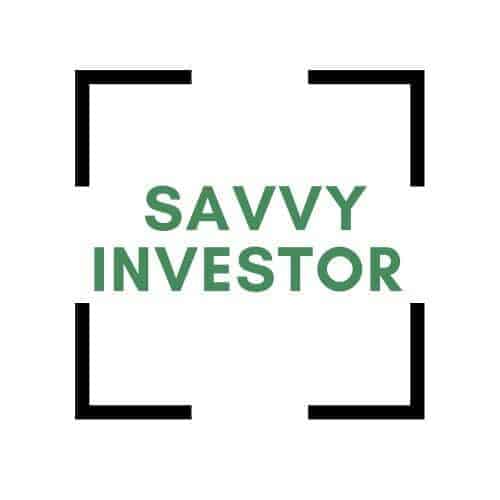You’ve found a great deal. Maybe it’s a duplex in a solid rental area, or a value-add multifamily you know can cash flow with the right improvements. You’ve run the numbers, talked to your contractor, pulled market comps, and verified your strategy. It feels like everything is finally lining up.
Except now you’re faced with the part that feels hardest of all—getting the capital.
If you’re reading this, you might be new to raising money. Maybe you’ve tried approaching someone already and walked away deflated. Or maybe you haven’t even made the ask yet because the idea of talking to a money partner feels overwhelming or intimidating.
Here’s the truth: people don’t invest in real estate deals—they invest in the people behind them. Especially when you’re new, the spotlight is on you, not just your numbers. So the question becomes: how do you present yourself—and your deal—in a way that builds trust, inspires confidence, and gets people to say yes?
This article will walk you through exactly that. You’ll learn what money partners are really looking for, what to avoid, how to prepare, and how to turn self-doubt into clear, grounded confidence.
The Deal Doesn’t Close the Capital—You Do
You’ve probably heard the phrase “If it’s a good deal, the money will come.” That’s partially true—but only if the person bringing the deal is seen as someone who can be trusted to manage it.
Even the best deal will fall flat if you’re unorganized, unsure of yourself, or unclear about your plan. Raising capital is not about who has the slickest pitch deck—it’s about who can communicate clearly, show they’ve done the work, and give their partner confidence that they’ll deliver.
The investor needs to believe that when challenges come up—and they will—you won’t panic, disappear, or make reckless decisions. They want to know you have a plan, that you’ve thought about the downside, and that you’ll treat their money with care and professionalism.
That trust isn’t built from data points alone. It’s built through the way you show up. Are you prepared? Calm? Honest? Have you built a team around you that gives your investor confidence? These subtle cues tell the story of how seriously you take this opportunity—and whether or not you’re the kind of person someone wants to work with.
Don’t underestimate how much your tone, language, and body language affect the way you’re perceived. You don’t need to be flashy—you need to be focused.
What Money Partners Actually Care About
A lot of newer investors think people won’t invest with them because they haven’t done enough deals. But experienced money partners care less about your past and more about how you operate right now.
They’re not looking for someone with decades of experience. They’re looking for someone who knows what they’re doing today—or has surrounded themselves with the right people who do. They’re evaluating your clarity, your ability to communicate a plan, your transparency around risk, and how well you can answer their questions.
Many capital partners are more concerned about being left in the dark than they are about the actual numbers. They’d rather invest with someone who says, “Here’s what I know, here’s what I don’t know, and here’s how I’m covering the gap,” than with someone who pretends to have everything figured out.
What they’re really asking is:
- Are you clear and confident?
- Are you prepared?
- Will you communicate honestly?
- Do you understand what can go wrong, and are you planning for it?
Example Insight: A money partner once said, “I don’t need someone who has done 10 deals—I need someone who knows how to think critically when something goes sideways.” That clarity shifted everything for the investor presenting. It wasn’t about track record. It was about how they handled pressure.
You Don’t Need a Deal History to Be Trusted—But You Do Need to Be Prepared
Let’s say this plainly: experience is great, but preparation is more important.
If you’re early in your investing journey and don’t yet have a track record, the best thing you can do is come into every conversation completely prepared.
Be able to clearly walk through your numbers. Understand the deal’s structure. Know the market and explain why this property makes sense. Have backup strategies for when things shift. Be transparent about the risks and how you plan to manage them.
But just as importantly, demonstrate that you’ve invested in your own learning. Share how you’ve been educated, what coaching or mentoring you’ve received, and who’s supporting you on your first few projects.
Example Application: One investor without any personal deals leaned on her network. She said, “This is my first acquisition, but my realtor specializes in investment properties, and I’ve got a coach reviewing my numbers. Plus, my contractor has 20+ years’ experience in this exact neighborhood.” That statement reassured her investor more than a long resume ever could.
Preparation builds confidence, not just in your investors but in yourself. If you’ve spent the time thinking through every question that might come up, you’ll be able to answer clearly and calmly—and that presence goes a long way.
Sell Yourself, Not Just the Deal
This isn’t about ego. This is about trust.
When people partner with you, they’re buying into you. Who you are. How you show up. Your values. Your decision-making. Your work ethic. Your willingness to own mistakes and grow.
Don’t hide behind the numbers. Be real. Share your “why.” Tell them what you’re building and how you see them being part of it. Highlight what you bring to the table—whether that’s vision, time, sweat equity, strategy, or operational ability.
And don’t be afraid to talk about the support system you’ve built. If you have a coach, a mentor, a great contractor, a trusted lawyer—mention them. It shows you’re not doing this blindly.
Example Conversation: “I’m still early in my investing career, but I’ve spent the last year building my systems, reviewing over 100 deals, and working with a mentor who has walked me through his own projects. I’m not winging this—I’m walking in with guidance.” That transparency doesn’t make you look inexperienced—it makes you look mature and intentional.
Be Honest About Risks (Yes, Really)
The temptation to only talk about the upside is real—especially when you feel like you’re trying to “sell” the deal. But here’s the truth: smart investors expect you to talk about risk. It actually builds more trust than hiding it.
Being upfront about what could go wrong doesn’t scare people off. It shows that you’re thoughtful, grounded, and operating like a real professional.
When you tell someone, “We’ve accounted for delays by adding buffer into the renovation schedule, and we’ve padded the budget by 10%”, what they actually hear is, “This person is responsible.”
Acknowledging risk and clearly explaining your plan for managing it is one of the fastest ways to earn credibility.
Show your investor that you’ve thought about the tough questions:
- What happens if your contractor flakes?
- What’s your backup plan if the refinance takes longer than expected?
- What if rents don’t go up as projected?
Pro Tip: Include a section in your presentation titled “What Could Go Wrong and How We’ve Planned for It.” This signals that you’re not wearing rose-colored glasses—and that’s exactly what partners want to see.
Don’t Pitch—Have a Professional Conversation
Nobody wants to be sold to. Especially not when large sums of money are involved.
Approach the conversation like you would with any potential business partner. You’re not asking for a favour. You’re offering a seat at the table.
Ask them what they’re looking for in an investment. Get curious about their experiences. Find out what would make them feel comfortable.
Then, walk them through your deal in a clear and conversational way. Make it about alignment, not persuasion. That approach alone puts you in the top tier of capital-raisers.
And most importantly, stay calm. When you feel rushed or panicked, it triggers uncertainty in others. But when you stay steady, answer questions confidently, and leave space for them to think things through, it puts you in a leadership role—one that earns trust.
Every Conversation Builds Your Reputation
Even if they say no, how you show up still matters. People remember whether you were respectful, whether you followed up, whether you were clear and professional.
The more you consistently show up like someone worth doing business with, the more people will talk about you that way—and refer you to others.
Capital-raising isn’t just about one deal. It’s about building long-term relationships. Treat every conversation as a stepping stone, and that trust will compound.
Every time you present yourself like someone who’s serious about this business, you’re building something bigger than just your current deal—you’re building a reputation.
Final Thoughts
You don’t need to be experienced to be effective. You need to be prepared. You need to be honest. You need to show that you’re serious.
If you’re putting in the work, building a network, continuing to learn, and treating every conversation with respect and professionalism, people will want to work with you.
Raising capital is one of the most valuable skills you can develop as an investor. And it starts with understanding this: investors aren’t just betting on the deal—they’re betting on you.
Show them you’re someone worth betting on.
Want Help Getting There?
If you’re ready to raise capital with more clarity and confidence, check out the
Raising Capital for Real Estate Investors Bootcamp
It includes 11+ hours of on-demand training, templates, and tools to help you build trust, structure deals properly, and present yourself like a pro—even if you’re just starting out.




